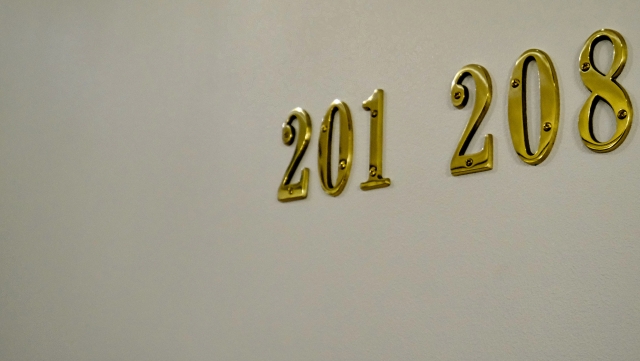Have you ever noticed that “4” is not used as a room number in Japanese hotels and hospitals? There are interesting cultural reasons why this number is avoided. Today, let’s explore together the superstitions behind this curious custom, from its superstitions to its impact on our modern times!
Why is the Number “4” Considered Special in Japan?
Why is “4” Considered Unlucky?
The number “4” is considered unlucky in Japan because the pronunciation of “4” (shi) is the same as the word for “death” (shi). This phonetic similarity leads many people to perceive the number as inauspicious. Consequently, hotels and hospitals often avoid using this number for rooms.
Is it True that “Four” and “Death” Have the Same Pronunciation?
Yes, in Japanese, the number “four” is pronounced “shi,” which is the same pronunciation as the word for “death” (死). This similarity causes many people to view the number as unlucky, leading to its avoidance in places like hotels and hospitals.
How Do Other Countries View the Number “4”?
Similar to Japan, countries like China and South Korea also consider the number “4” to be unlucky for the same phonetic reasons. However, in Western cultures, the number “13” is often considered unlucky and is frequently omitted in building floor numbers and room assignments.

The Tradition of “4” in Japan
Superstitions Surrounding Numbers in Folktales
Japan has a long history of superstitions, including those related to numbers. These superstitions are evident in various aspects of life, such as the choice of numbers for weddings and funerals, reflecting deep-seated cultural beliefs.
Are There Other Unlucky Numbers?
In addition to “4,” the number “9” (ku), which sounds like “suffering” (苦), is also avoided in Japan. This avoidance is based on the meanings associated with the sounds of these numbers, influencing their use in various situations
How Do Modern Hotels and Hospitals Handle This?
Behind the Scenes of Room Number Selection
Is Feng Shui Actually Involved?
Japanese architecture and design are often influenced by feng shui, an ancient Chinese environmental science that follows principles to enhance luck when determining building layouts and designs. Some hotels and hospitals incorporate feng shui concepts, which can affect room number selection. For example, avoiding room numbers containing “4” is believed to provide guests with a sense of security and improve their fortune.
A Headache for Hotel and Hospital Staff
Selecting room numbers can be a challenging issue for hotel and hospital staff. Facilities with many international guests or patients need to consider cultural sensitivities. Foreign visitors unfamiliar with the unlucky connotation of “4” might find the absence of rooms with this number puzzling. Therefore, staff must understand cultural differences while providing appropriate consideration.
How Do Customers Feel About This Superstition?
Do People Care When Choosing Rooms?
In reality, many Japanese people are mindful of this superstition. Especially for older generations and those who value tradition, avoiding room numbers with “4” or “9” is common. However, younger generations and international travelers may be less concerned about these superstitions. Nevertheless, hotels and hospitals strive to provide a sense of security to all users by maintaining these considerations.
User Experiences: Here Are Some Anecdotes!
For instance, there’s an anecdote about a traveler who canceled a hotel reservation because the room number was “404.” In hospitals, it’s common for foreign patients to ask staff why there’s no “Room 4.” These episodes demonstrate how cultural differences can significantly impact daily life and business
The Impact of Cultural Differences on Business
The “4” Superstition from a Foreign Perspective
Avoiding Misunderstandings in International Business
In international business, understanding and respecting cultural differences is crucial when collaborating with partners from diverse backgrounds. The superstition surrounding the number “4” in Japan might be an unexpected cultural feature for foreign business partners. Sharing such information in advance can help avoid misunderstandings in business settings and facilitate smooth relationship building.
A Tip for Traveling in Japan
When visiting Japan, it’s advisable to be mindful of such number-related superstitions. Particularly when booking hotels or hospitals, checking if room numbers contain “4” can help avoid potential issues. This useful information can make your stay in Japan more comfortable.
The Future of Superstitions
Changing Attitudes Among Younger Generations
Modern younger generations have varying views on traditional superstitions. Many young people prioritize scientific evidence and are less inclined to adhere to traditional superstitions. This shift is being closely observed for its potential impact on cultural sustainability and evolution.
Balancing Superstition and Science
There’s often tension between cultural superstitions and scientific understanding. However, recognizing that each contributes to cultural diversity and richness is key to their coexistence. In Japan, striking a balance between respecting traditional superstitions and embracing modern values remains a significant challenge for the future.


